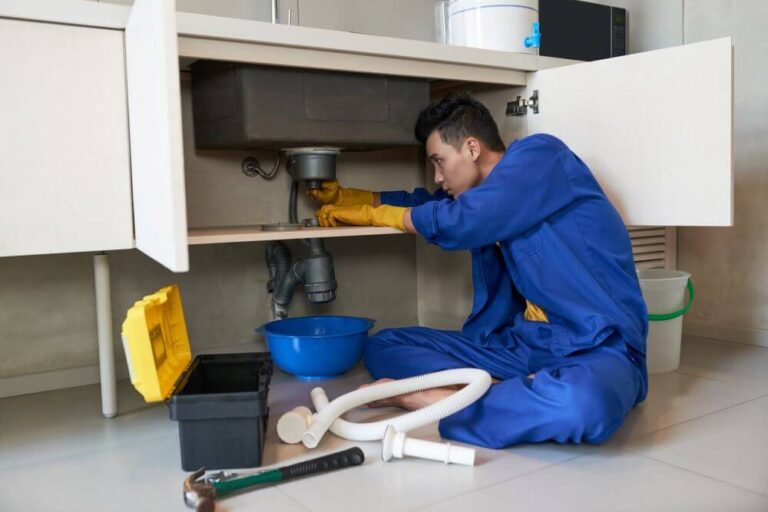Plumbing issues can quickly escalate into major problems for business owners, leading to expensive repairs, downtime, and even property damage. Preventative maintenance is one of the most effective ways to avoid these issues, and understanding how to spot potential plumbing concerns can save time and money. By paying attention to your plumbing system, being proactive with inspections, and responding quickly to any signs of trouble, you can keep your business running smoothly without unexpected plumbing disasters. Let’s explore a few tips that will help you prevent costly plumbing problems.
Plumbing Inspections Are Crucial for Prevention
A routine plumbing inspection is one of the best steps to take when protecting your business from costly plumbing issues. When you schedule a plumbing inspection with California Coast Plumbers, for instance, these professionals can identify potential weaknesses in your plumbing system before they turn into major issues. Small leaks, corroded pipes, and minor clogs may seem insignificant, but they can develop into much larger problems if left unattended. Having an expert assess your system regularly can help you maintain it in top shape and minimize the risk of costly breakdowns.
Maintain Your Drains and Pipes Regularly
Over time, drains and pipes can accumulate debris, grease, or even tree roots, leading to blockages and clogs. It’s crucial to keep drains clear and regularly maintain the pipes in your commercial space. Regular cleaning of drains can help prevent backups and slow drainage, which can be an indication of an underlying issue. For businesses with kitchens or heavy water usage, consider installing grease traps and scheduling frequent maintenance to ensure that grease, food particles, and other debris don’t cause blockages that might disrupt your business operations.
Be Mindful of Water Pressure
Water pressure plays a significant role in the overall health of your plumbing system. When it’s too high, it can put undue stress on pipes, causing them to burst or develop leaks over time. High pressure forces water through pipes at an increased speed, which can cause joints and fittings to loosen or crack, leading to leaks and potential flooding. On the other hand, water pressure that is too low can indicate a problem somewhere within the system, such as a clog or a leak. It can also make daily tasks like washing hands, flushing toilets, or using equipment in a commercial setting more difficult and inefficient.
To maintain the right pressure, you should regularly monitor it, especially if you’ve noticed any inconsistencies with your faucets or fixtures. Installing a pressure regulator is an effective way to ensure water pressure stays within the ideal range. Having a plumber inspect and adjust the water pressure periodically is a proactive step to ensure that your system operates smoothly, preventing both high and low-pressure problems from causing long-term damage to your plumbing infrastructure.
Fix Leaks Immediately
Leaky pipes or faucets might seem minor, but even small leaks can waste a significant amount of water and increase utility bills. More seriously, leaks can weaken the structural integrity of walls or floors and lead to mold growth, creating an unhealthy environment for your employees and customers. When you notice any leaks, it’s crucial to address them right away. A plumber can repair leaks promptly, ensuring they don’t worsen and cause bigger issues in the future.
Educate Employees on Plumbing Best Practices
Training your employees on proper plumbing practices is a crucial step in safeguarding your business’s plumbing system. The more aware your staff is of how their actions can affect the plumbing, the less likely it is that preventable issues will occur. For instance, ensuring that employees know never to flush anything other than toilet paper can drastically reduce the risk of clogs in restrooms. Items such as paper towels, sanitary products, or wipes can cause serious blockages in the pipes, leading to backups that might disrupt business operations. In the kitchen or break room, educating staff on proper disposal techniques is just as important.
Employees should understand that pouring grease, oils, or food scraps down sinks or dishwashers can quickly lead to clogged drains. Providing clear instructions and offering alternatives, such as designated containers for grease disposal, will help prevent buildup in the plumbing system. Another helpful practice is to encourage employees to report any signs of plumbing issues, such as slow drains or strange odors, right away. This proactive approach ensures that potential problems are addressed before they escalate.
Keeping your business’s plumbing in good condition is an essential part of maintaining smooth operations and preventing costly repairs. By investing in routine inspections, staying on top of drain maintenance, monitoring water pressure, addressing leaks quickly, and educating employees about best practices, you’ll be well-equipped to avoid plumbing problems before they become major issues. Don’t wait for problems to arise—take proactive steps to protect your plumbing system and your business.


